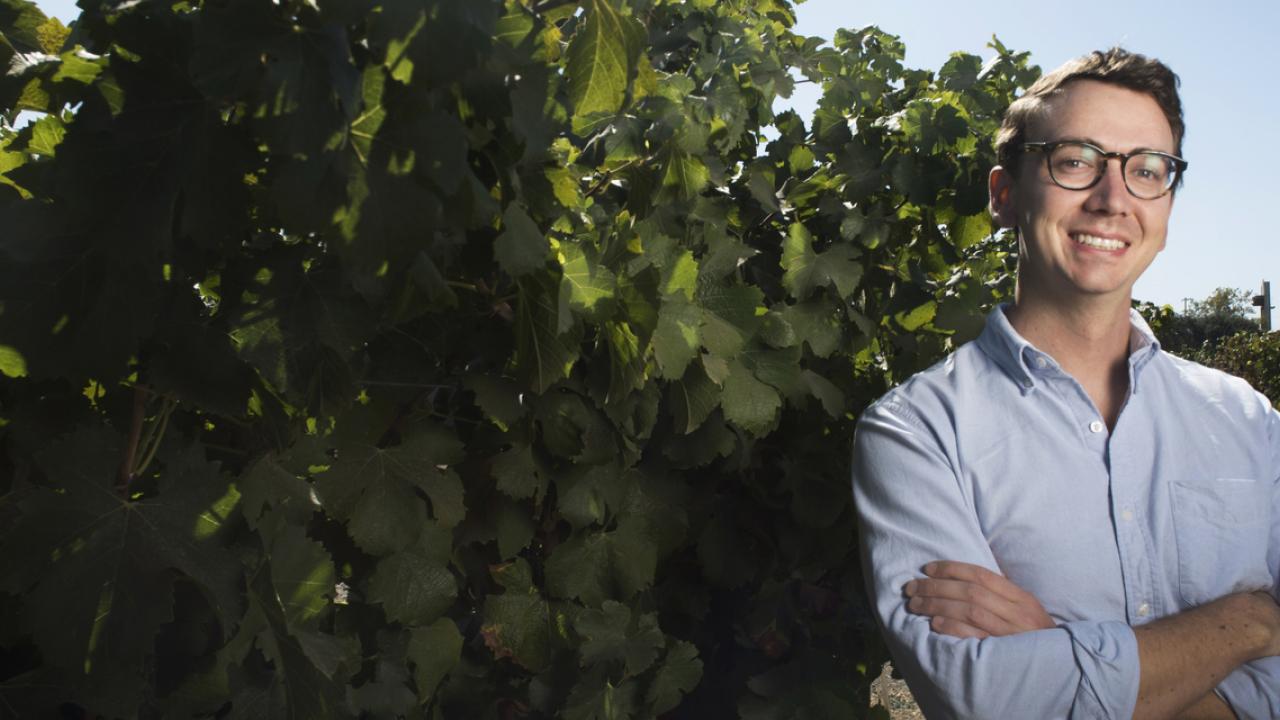
How UC Davis Grad Student Ryan Dowdy Fights Climate Change
Ryan Dowdy’s research could revolutionize California’s food and agriculture industry while simultaneously fighting climate change.
The fourth-year Ph.D. candidate in the Food Science graduate group works with Assistant Professor Christopher Simmons to convert biological food waste into electricity.
“California produces over six million tons of food waste every year, and that goes right into landfills,” Dowdy said. In California, grape pumice and tomato leftovers are the worst culprits. Worldwide, it’s just as much of a problem. If food waste alone were a country, it’d be third behind the United States and China as the biggest contributor to global warming.

Dowdy’s solution involves taking unwanted sludge from the campus’s anaerobic digester and processing it through microbial fuel cells. These cells are essentially living batteries, Dowdy says. The concept of using them to process food waste has been around since 1911, but the workings of the microorganisms inside remain poorly understood. UC Davis is at the forefront of unraveling how bacteria in MFCs impact and improve their performance.
Dowdy’s dissertation examines what conditions, like temperatures and feedstock concentration, allow the cells to convert the most organic material into the most useful electricity.
“We’ve had great success with it,” Dowdy said. “We were able to get a higher power output than previously published literature.”
Dowdy represented UC Davis with his research in the 2014 UC-level Grad Slam competition.
Originally terrified of public speaking, Dowdy contributes his win at the UC Davis Finals to excessive practice, particularly with help from the campus Toastmasters club. He joined in his first year of Ph.D. study as a way to improve the way he spoke about his work.
As Bachelor of Arts in English from University of North Carolina at Chapel Hill, Dowdy is a firm believer in the value of communication. He believes that those in STEM fields need to work with those in the liberal arts to succeed.
“When science and arts and culture are all working together, that’s how we start building a better world,” he said.
About Graduate Studies at UC Davis
Graduate Studies at UC Davis includes 99 dynamic degree programs and a diverse and interactive student body from around the world. Known for our state-of-the-art research facilities, productive laboratories and progressive spirit – UC Davis offers collaborative and interdisciplinary curricula through graduate groups and designated emphasis options, bringing students and faculty of different academic disciplines together to address real-world challenges.
UC Davis graduate students and postdoctoral scholars become leaders in their fields: researchers, teachers, politicians, mentors and entrepreneurs. They go on to guide, define and impact change within our global community.
For information on Graduate Studies’ current strategic initiatives, visit the Graduate Studies strategic plan page.
